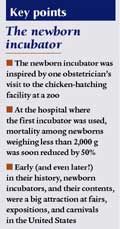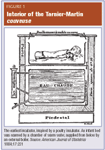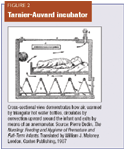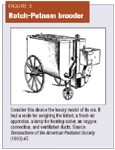The curious birth and upbringing of the newborn incubator
Pioneering physicians took inspiration from chickens and zoos and envisioned a means to reduce mortality in premature newborns. The idea worked, they strutted their stuff before the public, and the rest is medical history.
DR. SCHUMAN is adjunct assistant professor of pediatrics at Dartmouth Medical School, Lebanon, N.H., and practices pediatrics atHampshire Pediatrics, Manchester, N.H. He is a contributing editor for Contemporary Pediatrics. He has nothing to disclose in regard toaffiliations with, or financial interests in, any organization that may have an interest in any part of this article.
You may be surprised to learn that, once upon a time, it was standard practice for obstetricians, not pediatricians, to care for newborns in hospital nurseries. Surprising also is that many of the scientists who pioneered neonatal medicine (well before neonatology became a pediatric subspecialty) were-that's right-obstetricians. In fact, it was a French obstetrician who developed the first incubator for newborns, the first of many technological innovations that raised the rate of survival of premature infants.

Incubating inspiration
Interest in improving the care of premature infants among mid-19th century European obstetricians arose from the knowledge that a premature baby would thrive only if kept warm. The first infant warming device was a double-walled tub, developed in Russia. The space between the walls was continuously replenished with warm water to maintain the body temperature of the premature infant placed inside the tub.1 Later that century, starvation and war led to a rapid decline in the French birth rate, prompting the French government to direct obstetricians to reduce the high mortality rate among premature infants.

Dr. Tarnier first used the device at the Paris Maternité Hospital in 1880. Within three years, he demonstrated a 50% reduction in mortality among premature infants who weighed less than 2,000 g.

A second generation of incubators

Having "the talk" with teen patients
June 17th 2022A visit with a pediatric clinician is an ideal time to ensure that a teenager knows the correct information, has the opportunity to make certain contraceptive choices, and instill the knowledge that the pediatric office is a safe place to come for help.
Artificial intelligence improves congenital heart defect detection on prenatal ultrasounds
January 31st 2025AI-assisted software improves clinicians' detection of congenital heart defects in prenatal ultrasounds, enhancing accuracy, confidence, and speed, according to a study presented at SMFM's Annual Pregnancy Meeting.